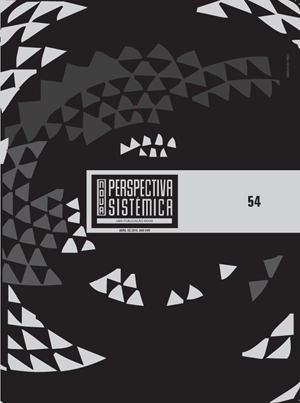Strategic narratives to organisational change
the perspective of the poetic language
Keywords:
cocreation, poetic language, social constructionismAbstract
In the context of technological, cultural,social and political changes, we are experiencinga new paradigm of an interconnectedworld, globalised and with new challenges to befaced. Traditional theories and methods of interventionand change appear to be not relevant inthis context anymore. Specifically, in the organizationalfield, struggles for a change is happening. It seems to be urgent to reframe the role of thecompanies, of the leaders, the role of bureaucraticprocesses as well as the role of value proposition.The present article brings the understanding oflanguage as a social construction, as a possiblemean of change in the organisational logic. In thisscenario, the poetic language is presented as aresource to construct and to reframe meaning,promoting the possibility of reinventing organizations.
Downloads
References
Bauman, R. (2000) Language, identity, performance. Pragmatics 10:1.1-5 International Pragmatics Association.
Boje, D. M. (1995). Stories of the storytelling organization: A postmodern analysis of Disney as "Tamara-Land".Academy of Management Review 38 (4):997-1035.
Boje, D. M. (2001) Narrative Methods for Organizational & Communication Research. New Mexico State University, USA. Sage series.
Camargo-Borges, C. &Rasera, E.F (2013). Social Constructionism in the Context of Organization Development Dialogue, Imagination, and Co-Creation as Resources of Change. SAGE Open. April-June . vol. 3no.2
Castells, M. (2004). Informationalism, Networks and the Network Society: A theoretical blueprint. In: The network society: a cross-cultural perspective, Northampton, MA: Edward Elgar.
Cunliffe, A. L. (2000). Social poetics: possibilities for critical and postmodern research. Las Vegas: University of New Hampshire.
Guanaes, C. (2006). A construção da mudança em terapia de grupo: um engoque construcionista social. São Paulo, Brasil: Vetor.
Gergen, K. J. (1985). The social constructionist movement in modern psychology. American Psychologist. 40, 266-275.
Gergen, K. J. (1997). The place of the psyche in a constructed world. Theory and Psychology, 7(6):723-746.
Gergen, K.J. (2015). An Invitation to Social Construction. London: Sage. 3rd Edition.
Gergen, K. & Gergen, M. (2004). Social Construction: Entering the Dialogue. Chapter 1. Taos Institute; Publishing Chagrin Falls, OH.
Gergen, K.J. (2001) Social construction in context. London: Sage.
Gittell, J.H. & Douglass, A. 2012. Relational bureaucracy: Beyond bureaucratic and relational organizing. Provisionally accepted, Academy of Management Review.
Grandesso, M. A. (2000), Sobre a Reconstruc?a?o do significado: Uma Ana?lise Epistemolo?gica e Hermene?utica da Pra?tica Cli?nica, Sa?o Paulo: Casa do Psico?logo.
Gribbin, J. (2002). Science: A History. London: Allen Lane / Penguin. New York: Penguin Books, 2003.
Hypeness (2015) Neste café no Rio de Janeiro, second-linevocê decide quanto quer pagar. Disponível em:
http://www.hypeness.com.br/2014/05/neste-cafe-no-rio-de-janeiro-voce-decide-quanto-paga/. Acesso em: 20/08/2015.
Kotler, P. & Caslione, J. (2009). Chaotics: the business of managing and marketing in the age of turbulence. New York: Amacom.
McMillan, E. (2008). Complexity, management, and dynamics of change: changes for practice. USA: Routledge.
McNamee, S. & Gergen, K.J. (1998). Relational responsibility: Resources for sustainable dialogue. Sage Publications.
Projeto Draft (2015).Vagas: a incrível empresa que não tem metas financeiras nem hierarquia — e cresce 25% ao ano. Disponível em: http://projetodraft.com/vagas/#sthash.OCYkH1F7.dpuf . Acesso em 20/08/2015.
Ramirez, R. (1999). Value co-production: Intellectual origins and implications for practice and research. Strategic Management Journal, 20:49-65.
Sisodia R.S., Wolfe D.B., Sheth J.N. (2007). Firms of endearment: How world-class companies profit from passion and purpose. Wharton School Publishing, Prologue.
Spink, M. J. P. & Medrato, B., 1999. Produção de sentido no cotidiano: Uma abordagem teórico-metodológica para análise das práticas discursivas. In: Práticas Discursivas e Produção de Sentidos no Cotidiano: Aproximações Teóricas e Metodológicas (M. J. P. Spink, org.), pp. 41-61, São Paulo: Cortez Editora.
Suchman, A. L. (2011) Organizations as Machines, Organizations as Conversations: Two Core Metaphors and their Consequences. Medical Care, V.49, number 12, supl.1 , p43-48.
Taylor, D. (2001). Tell Me a Story: The Life-Shaping Power of Our Stories. Bog Walk Press.
Tetenbaum, T. J., (1998). Shifting paradigms: From Newton to chaos, Organizational Dynamics, Spring 1998:21-32.
Vargo, S. L. & Lusch, R. F. (2004). Evolving to a New Dominant Logic for Marketing, Journal of the Academy of Marketing Science 68: 1-17.
Vargo, S. L. & Lusch, R. F. (2008). Service-dominant logic: continuing the evolution, Journal of the Academy of Marketing Science 36(1): 1-10, published online 1 August 2007.
Wolfe, D & Snyder, R. (2004). Ageless Marketing: Strategies for Reaching the Hearts and Minds of the New Customer Majority. Dearborn Trade publishing, p. 20.
Zandee, D. (2011) Sustainable organizational development as generative process: About play, poetry and provocation. Nyenrode Business Universiteit.
Zuboff, S. & Maxmin, J. (2002) The Support Economy: Why Corporations are Failing
Individuals and the Next Episode of Capitalism. New York: Allen Lane.
Downloads
Published
How to Cite
Issue
Section
License
Autores que publicam nesta revista concordam com os seguintes termos:- Autores mantém os direitos autorais e concedem à revista o direito de primeira publicação, com o trabalho licenciado simultaneamente sob uma Licença Creative Commons Attribution após a publicação, permitindo o compartilhamento do trabalho com reconhecimento da autoria do trabalho e publicação inicial nesta revista.
- Autores têm autorização para assumir contratos adicionais separadamente, para distribuição não-exclusiva da versão do trabalho publicada nesta revista (ex.: publicar em repositório institucional ou como capítulo de livro), com reconhecimento de autoria e publicação inicial nesta revista.
- Autores têm permissão e são estimulados a publicar e distribuir seu trabalho online (ex.: em repositórios institucionais ou na sua página pessoal) a qualquer ponto antes ou durante o processo editorial, já que isso pode gerar alterações produtivas, bem como aumentar o impacto e a citação do trabalho publicado (Veja O Efeito do Acesso Livre).

















